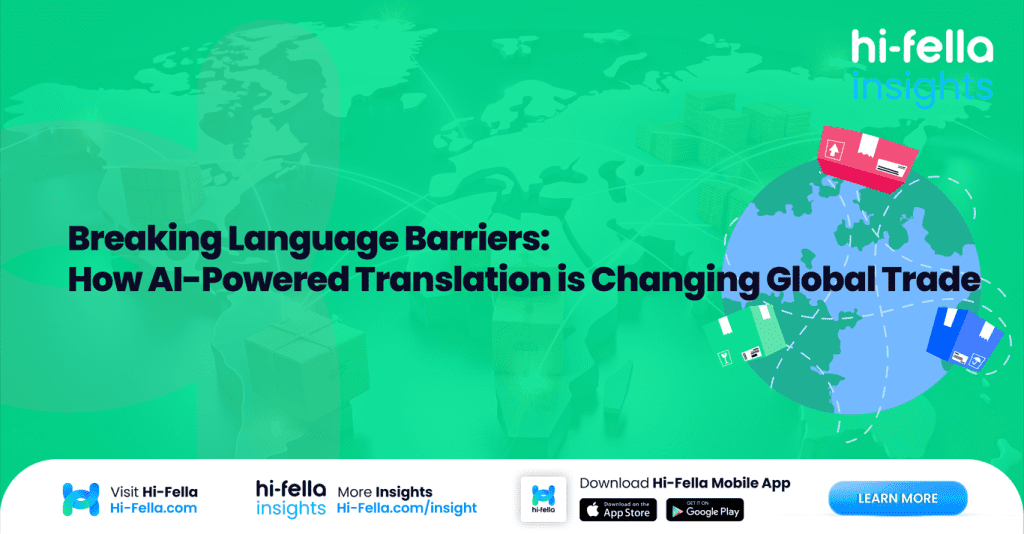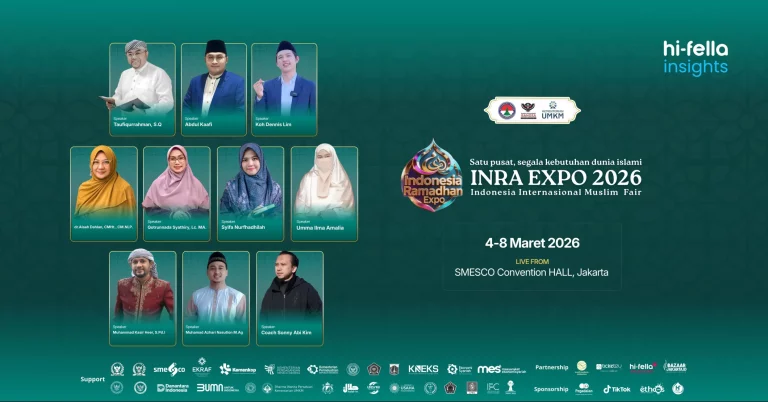Language has always been one of the biggest challenges in international trade. Businesses looking to expand globally often face communication hurdles that slow down negotiations, complicate supply chain management, and create misunderstandings. However, AI-powered translation technology is changing the game by breaking down these barriers and enabling seamless global commerce.
With real-time language translation, businesses can now communicate with international buyers, suppliers, and partners without needing human interpreters or expensive translation services. This article explores how AI-powered translation is revolutionizing global trade, the benefits for businesses, and how platforms like Hi-Fella are making international connections easier than ever.
The Challenges of Language Barriers in Global Trade
Why Language is a Major Obstacle
International trade involves companies from different linguistic backgrounds engaging in contracts, negotiations, and supply chain coordination. Some of the most common challenges include:
- Miscommunication: Incorrect translations lead to misunderstandings and errors in agreements.
- Slow Negotiations: Businesses often rely on human translators, which delays transactions.
- Limited Market Access: Companies avoid certain markets due to language constraints.
- Cultural Differences: Language is deeply tied to cultural norms, making cross-border business interactions more complex.
These challenges have historically made it difficult for small and mid-sized enterprises (SMEs) to expand beyond their home markets.
How AI-Powered Translation Works
The Evolution of Machine Translation
AI-powered translation technology has evolved from basic machine translation (MT) tools like Google Translate to advanced AI models using natural language processing (NLP), deep learning, and neural machine translation (NMT).
How AI Translation Works
- Neural Machine Translation (NMT): AI models analyze entire sentences instead of translating word by word, leading to more accurate translations.
- Context Recognition: AI understands industry-specific terminology and adapts to different business contexts.
- Real-Time Learning: AI improves with continued usage, refining translations based on past interactions.
- Speech-to-Text & Text-to-Speech: Businesses can use voice-based translation tools for spoken communication.
By combining these technologies, AI translation can now handle complex business interactions with high accuracy.
The Benefits of AI-Powered Translation in International Trade
Faster & More Efficient Communication
Traditional translation methods require time-consuming manual processing, but AI translation enables:
- Instant document translations for contracts, invoices, and agreements.
- Real-time conversation translation during business meetings and negotiations.
- Automated multilingual email responses for international customer inquiries.
Cost Savings for Businesses
Hiring professional translators or interpreters for every transaction is expensive. AI-powered translation offers a cost-effective solution by eliminating the need for human translation in most cases.
Expanding Market Opportunities
Many businesses avoid international expansion due to language limitations. With AI translation:
- SMEs can enter foreign markets without worrying about language barriers.
- E-commerce businesses can list multilingual product descriptions to attract global buyers.
- Companies can negotiate deals more confidently, knowing that their communications are accurately translated.
Improved Supply Chain Coordination
Global supply chains involve communication between manufacturers, logistics providers, retailers, and consumers. AI-powered translation enhances:
- Cross-border collaboration by ensuring clarity in contracts and logistics documents.
- Real-time tracking and reporting with suppliers in different regions.
- Better compliance with international regulations and legal requirements.
Industries Benefiting from AI-Powered Translation
E-Commerce & Retail
With AI-powered translation, online retailers can offer multilingual customer support, automatically translate product reviews, and market their products globally.
Manufacturing & Supply Chain
Manufacturers working with global suppliers and distributors can now seamlessly translate engineering specifications, safety regulations, and compliance documents.
Finance & Legal
Financial institutions and legal firms use AI-powered translation for contract negotiations, regulatory filings, and investment reports, ensuring compliance across different jurisdictions.
Healthcare & Pharmaceuticals
Pharmaceutical companies operating in multiple countries use AI to translate clinical trial data, medical documentation, and compliance reports for regulatory approvals.
How AI-Powered Translation is Enhancing Virtual Exhibitions & B2B Marketplaces
The Growth of Virtual Trade Shows
As trade exhibitions and networking events move online, businesses need seamless communication tools to interact with international attendees. AI-powered translation enables:
- Real-time multilingual chat support for B2B meetings.
- Live speech translation for webinars and product demonstrations.
- Automated subtitling and transcription for international audiences.
Hi-Fella: A Global Trade Platform Optimized for AI Translation
Hi-Fella is an online exhibition platform that leverages AI translation to help businesses expand their global reach. It offers:
- Multilingual Business Networking: Buyers and suppliers can communicate in real-time without language barriers.
- AI-Powered Product Listings: Businesses can showcase products in multiple languages to attract international clients.
- Seamless B2B Interactions: From contract negotiations to virtual meetings, Hi-Fella ensures smooth communication across different languages.
The Future of AI Translation in Global Trade
The Rise of Hyper-Personalized AI Translation
Future AI translation tools will adapt not only to languages but also to regional dialects and industry-specific jargon. Businesses will be able to create custom AI translation models trained for their industry and customer base.
AI & Voice Recognition Integration
With advancements in speech recognition and AI assistants, businesses will soon use voice-controlled AI translation for:
- Instant multilingual customer support.
- Voice-based order processing for international transactions.
- AI-powered negotiation tools that translate live conversations in real-time.
Blockchain & AI Translation for Secure Global Transactions
AI-powered translation combined with blockchain technology will enhance:
- Tamper-proof document translation for international contracts.
- Smart contract automation in multiple languages.
- Improved compliance for cross-border regulations.
Embrace AI Translation for Global Business Success
The future of global trade depends on seamless communication, and AI-powered translation is eliminating language barriers faster than ever before. Whether you are an exporter, manufacturer, retailer, or supplier, leveraging AI translation can help you expand into new markets with confidence.
Hi-Fella provides the perfect solution for businesses looking to engage in international trade without language limitations. With real-time translation, AI-powered business networking, and multilingual product showcases, Hi-Fella is revolutionizing the way businesses connect globally.
Don’t let language barriers hold you back. Join Hi-Fella today and expand your business worldwide!








